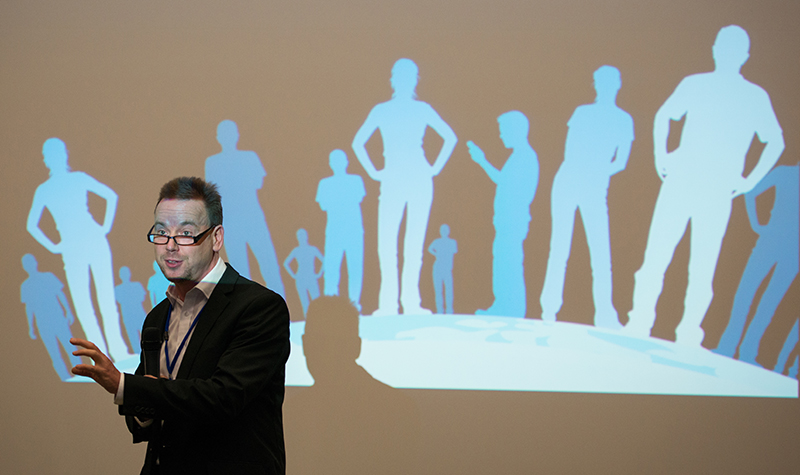Government with the people
Estimated reading time: 3 Minutes


Geoff Mulgan spoke on the evening of Monday 9 December as part of the Blavatnik School of Government’s Challenges of Government Conference. Mulgan was known already to many in the audience – perhaps from his work as co-founder of Demos, as a past director of the UK Prime Minister’s Strategy Unit, or as current Chief Executive of Nesta – and, true to his reputation, delivered a sparkling talk on the need for a new framework to guide government-citizen relations in the twenty-first century.
At the outset of his talk, Mulgan noted that Lincoln’s Gettysburg Address line (about “government of the people, by the people, for the people”) is often quoted. But what is talked about less is how those in power can govern with the people. At a time when many people distrust politicians and some governments just want to “dissolve” the people, how governing can be done with the people is our generation’s major priority.
Mulgan observed that the traditional paradigm for thinking about government-citizen interaction is expectations-based. We hear of rising expectations of government, and that there is no way for governments to keep up. But, Mulgan asked, should we really only be thinking about this interaction in terms of expectations?
Mulgan presented a new model to attendees of the Challenges of Government Conference. He observed that when we all interact with our parents, children, and friends, we do not speak only about expectations. To do so would seem cold or mechanical. We only rely on the idea of expectations when we have no prior relationship with someone else. And yet in the interactions between citizens and government there is a shared project, a prior relationship. So, Mulgan suggested, we ought to think about government (from the perspective of citizens) in “relational terms”.
This relational framework for government-citizen interaction is especially relevant, said Mulgan, because of three trends of our time. First, public service targets have been singularly ineffective in creating warmth between citizens and politicians. Second, businesses have moved to talking in more relational language, and business ideas (such as Massive Online Open Courses – MOOCs) that ignore human relationships are struggling. Third, technology has allowed for much more automated government, but may also jeopardise the human contact between government and citizens. These trends make a relational framework for governing all the more valuable.
Mulgan then applied this framework to particular policy tools and policy areas. To take just a few examples of what was mentioned:
- In the area of open data, Mulgan emphasised the need for technically-literate geeks to ask people how they want to use open data.
- In innovation, the best policy teams are people-powered, said Mulgan, and some of the most successful examples of policy development – in places such as Boston and South Korea – involve a direct line of contact between people and government.
- In healthcare, Mulgan suggested that there still has not been a shift to the real problems facing the next generation: for example, the problem of long-term chronic care. Further, there is insufficient emphasis on how networks and nodes can improve health outcomes (for example, obesity levels).
- In political participation, Iceland, Colombia, Estonia, and Finland have all pioneered the use of technology in government to open up politics and enhance processes such as constitutional change.
Mulgan emphasised that people-powered politics, and a relational approach, would have to operate differently at different stages of the policy process, for example at the framing stage. But a relational lens for politics could have the capacity to alter political practice all the way up – and all the way down.
Wittgenstein once claimed that we first learn belief, and then we learn doubt. But Mulgan added that after belief and doubt must come action. He then noted, in conclusion, that it is a relational government – a government that is open, experimental, and evidence-based – that is most capable of achieving action with the people that it serves.
Mulgan’s talk was at once engaging and erudite, full of up-to-date examples and accounts of currents trends – with the questions that followed the talk allowing Mulgan to explore further case studies (in the Arab Spring, Africa, and elsewhere).
The presentation raised many further issues that could not be traversed in the time allotted at the conference: for example, how should a government and a citizenry draw on culture to inform the relational model in different countries? What does a relational approach require, beyond an attitude of responsiveness and a commitment to use of technology in a warm, human way? And to what extent is the “relational” approach a framework of political substance as well as a framework for political delivery?
That these questions were left in the audience’s mind long after Mulgan stopped speaking highlighted how stimulating his ideas were.
